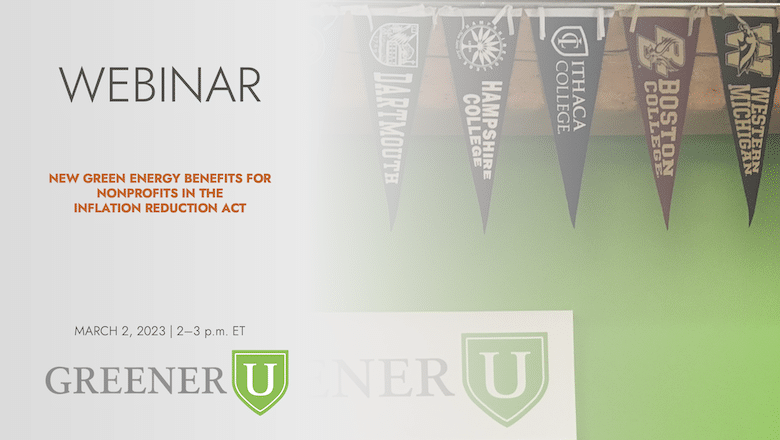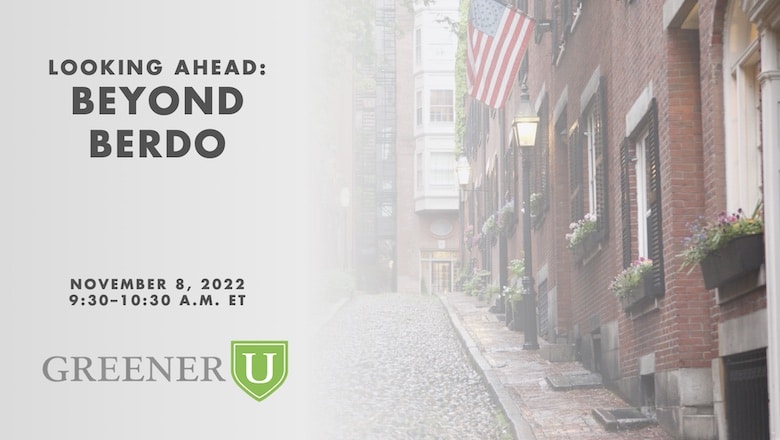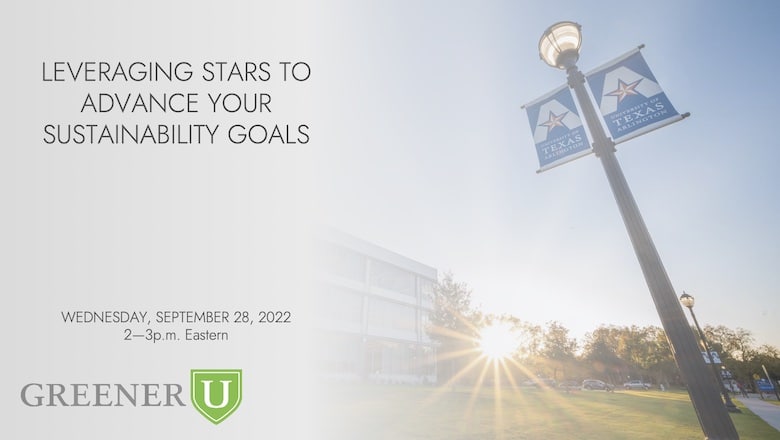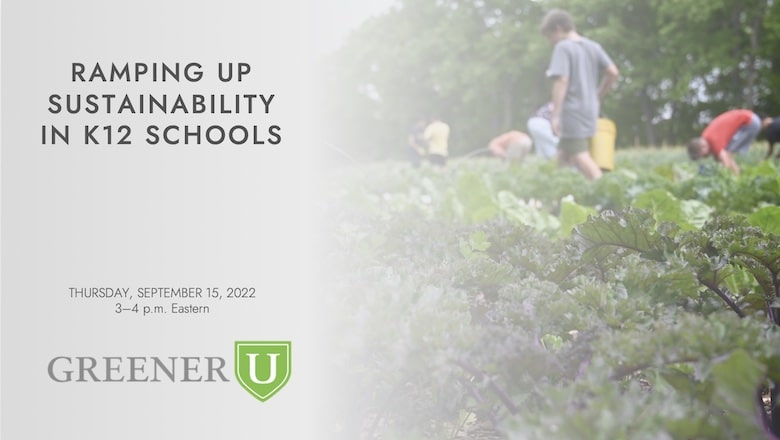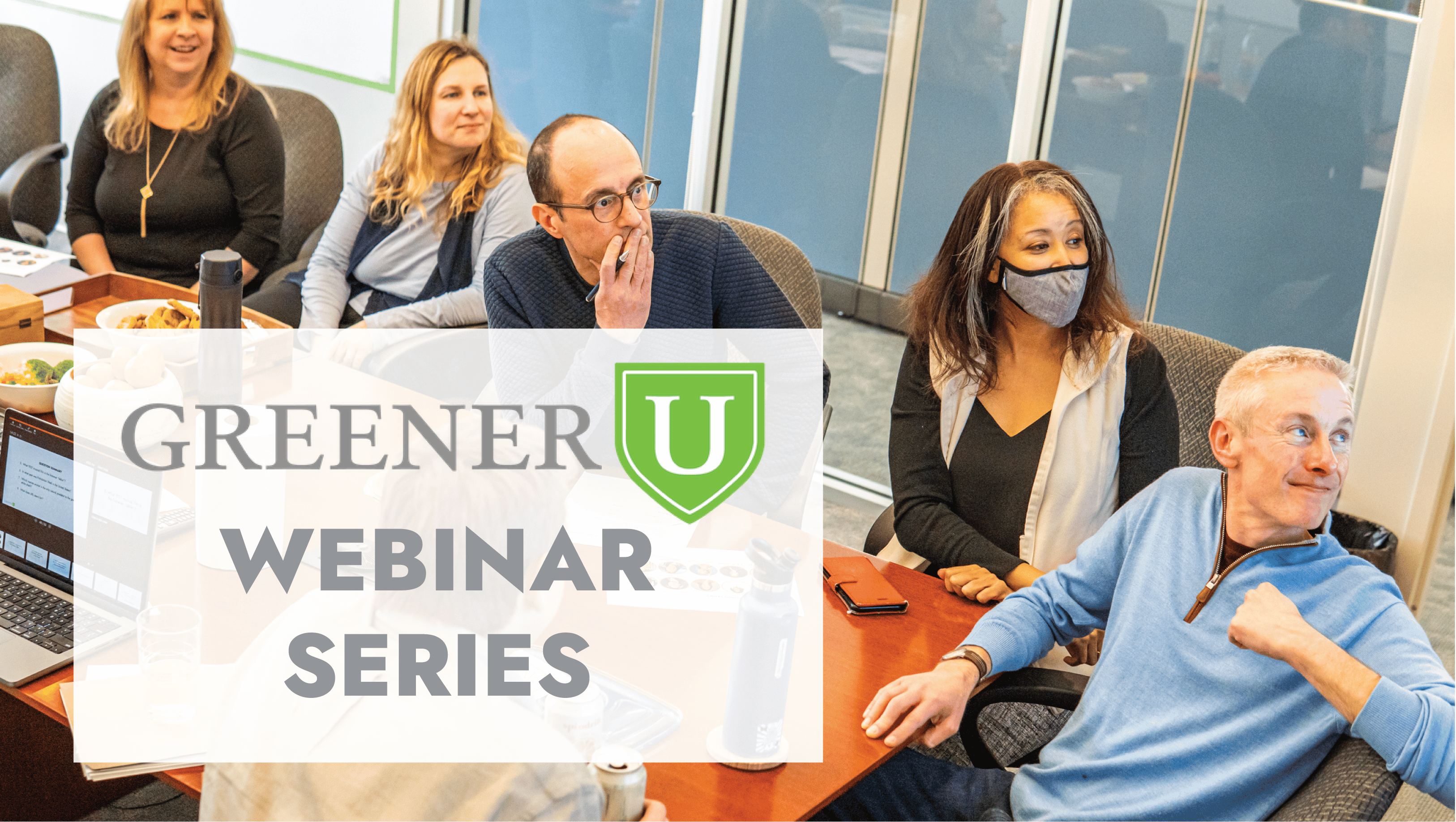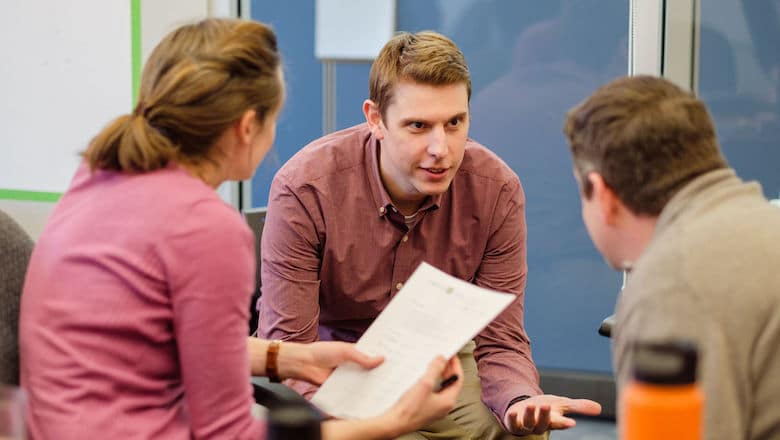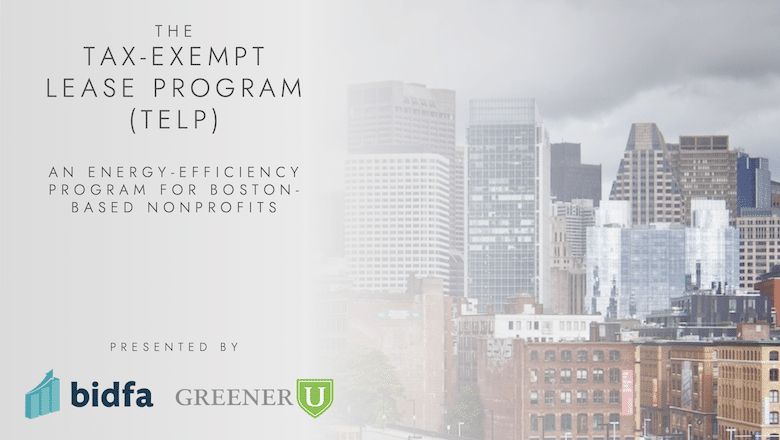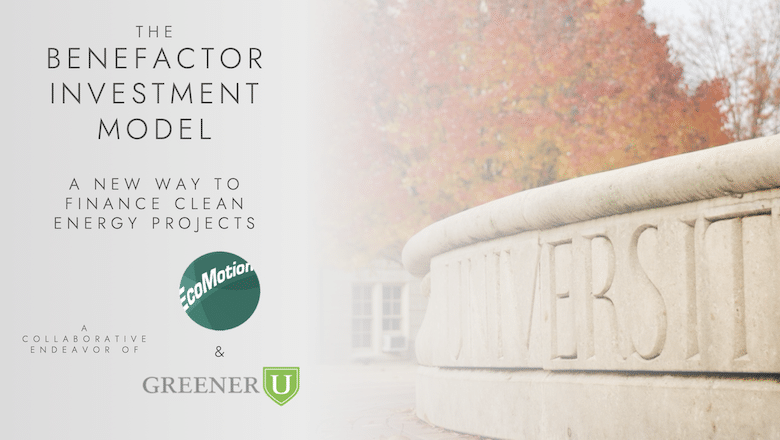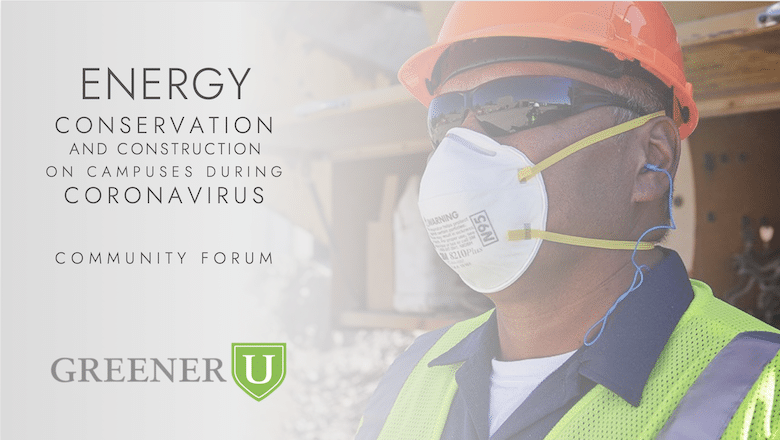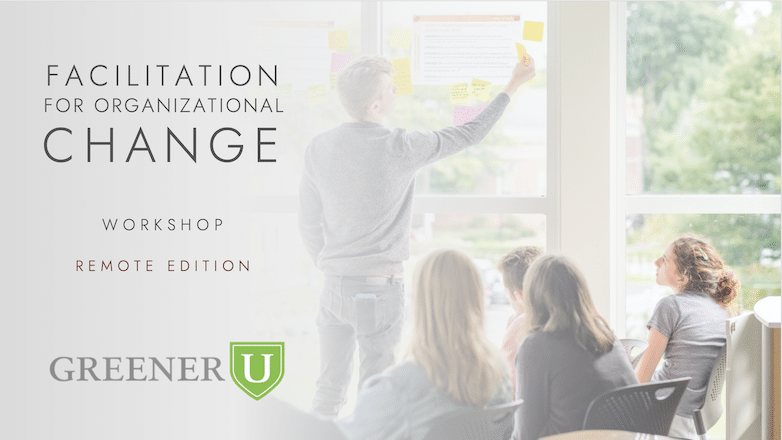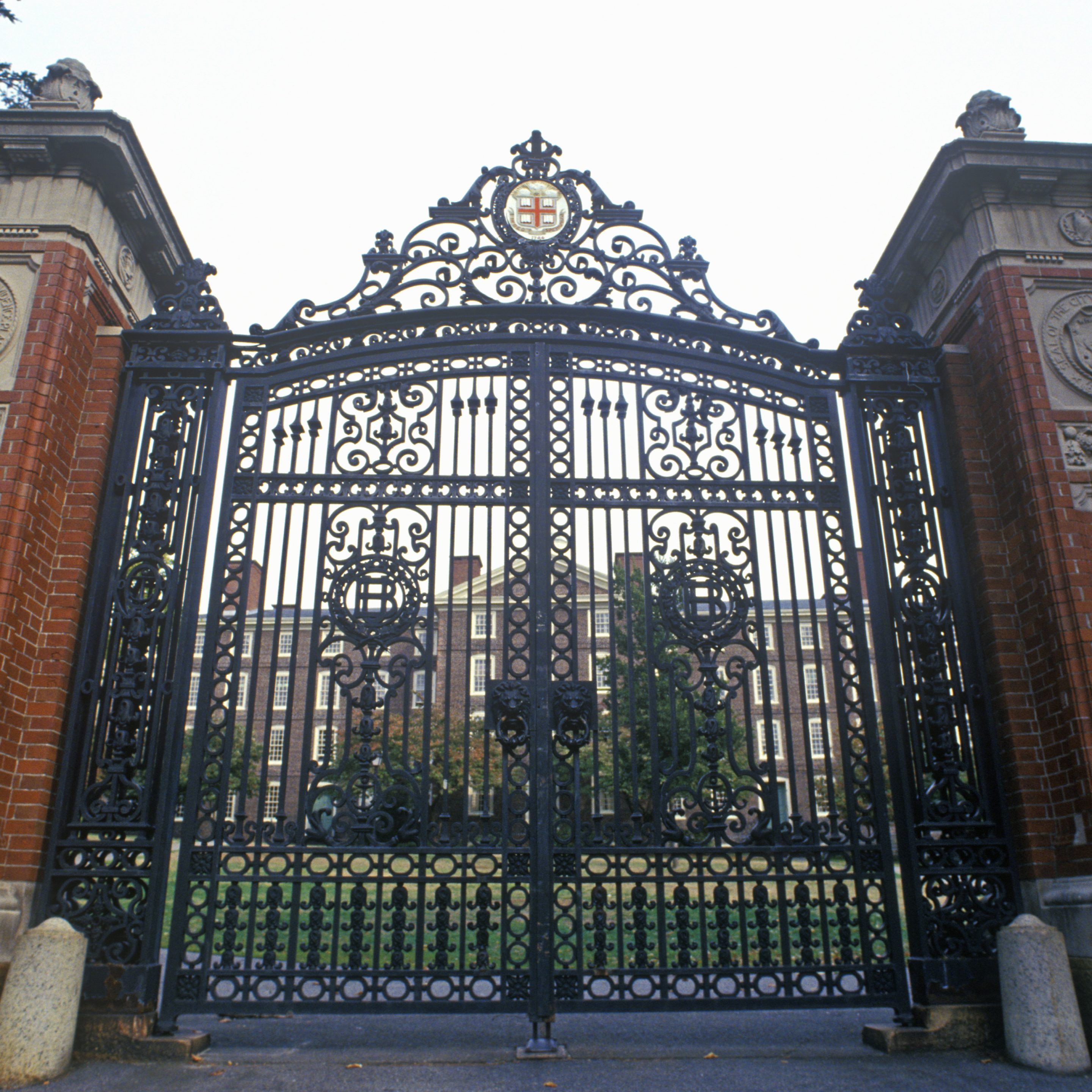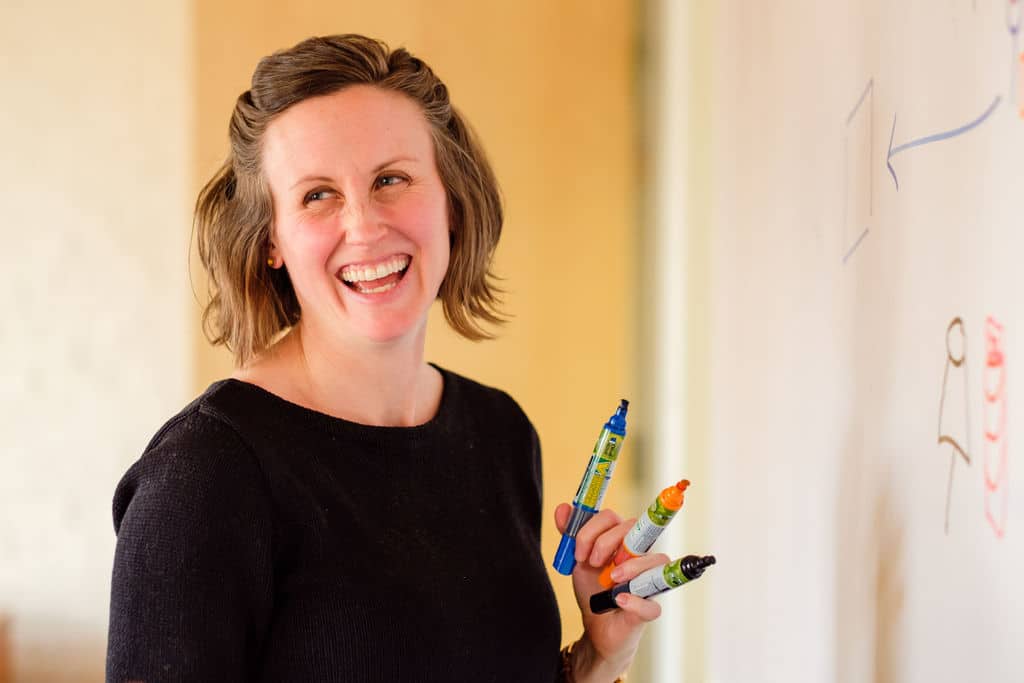Webinars
Vibrant. Exhilarating. Complicated. Messy.
We're not talking about your love life. We’re talking about working in an institutional setting, where getting things done is no simple task. If you’re looking at launching a major initiative, an interdepartmental project, or moving forward with your climate action goals, you need to draw from a different toolkit than your job description outlines—you need to be persuasive.
MorePassage of the 2022 Inflation Reduction Act created unprecedented opportunities and incentives for businesses, individuals, and institutions to invest in electrification, renewables, and efficiency measures—from electric vehicles to EV charging stations to solar PV and more. New with this legislation is the opportunity for nonprofit organizations to get a cash refund for the value of tax credits ordinarily out of their reach.
MoreBoston’s BERDO—the Building Energy Reduction and Disclosure Ordinance—was developed to help the city achieve its climate goals of all buildings reaching net zero emissions by 2050. Building owners need to reach significant reductions to meet five-year incremental goals or face fines.
But some building owners are finding BERDO requirements challenging to meet from a financial standpoint. How will building owners plan for updated standards as they become more stringent down the road? What is the best way to deal with deferred maintenance? What financing opportunities are available? What are the additional benefits that can help justify first costs?
MoreAASHE STARS inventorying, analysis, and submission is a lengthy and complex process—one that can be all-consuming for an institution. But one of the purposes of STARS is to provide a baseline of data to help your institution understand the next steps toward implementing sustainable solutions. Meghna Tare, chief sustainability officer at the University of Texas at Arlington, joined us in September 2022 to talk about how UTA took STARS reporting to the next level to make the data accessible and clear to campus stakeholders.
MoreA recent study published in the Lancet from a survey of 10,000 young people (ages 16-25) in ten countries, including the U.S., showed high levels of climate anxiety among respondents. K12 schools are responding with more sustainability curriculum, greenhouse gas emissions and other sustainability inventories, climate action planning, and energy-efficiency measures. Watch this insightful discussion with sustainability representatives from three schools that have taken different steps toward sustainability and climate change mitigation efforts at their campuses and find out how they got started.
MoreFrom time to time, GreenerU hosts webinars and workshops on topics ranging from climate neutrality and energy efficiency measures to climate action planning and facilitation. Watch this space for upcoming webinar topics featuring stories from your peers, lessons learned, and best practices in sustainability and climate change mitigation.
MoreUnderstanding the ins and outs of financing major energy and sustainability projects is not everyone's strength. But getting more familiar with the different, sometimes creative ways you can help your institution figure out how to pay for efficiency and renewables could make a difference. This presentation was designed to help you develop more familiarity with the terms, the pros, the cons, and the contingencies to make conversations with your institution's CFO go more smoothly.
MoreAs institutional campuses are exploring ways to draw down greenhouse gas emissions, one of the largest sources of ongoing emissions is heat via fossil fuels. Many campuses use steam, a century-old technology that relies on coal, natural gas, or nuclear energy to heat water into steam that is piped through buildings through radiators. But technology has greatly advanced to the point of requiring nearly ambient-temperature water to heat our buildings. Moving toward climate neutral means moving away from these old technologies, specifically to electricity-powered systems that can be fueled by renewable sources.
MoreNavigating the steps to climate neutrality is hard. But we're in this together. From big-picture planning and programming to detail-driven project orientation, GreenerU helps institutions navigate the organizational, operational, and infrastructure changes required to reach climate neutrality. Join us for a series of facilitated peer discussions oriented to support each other through the process of achieving climate neutrality.
MoreAs any sustainability professional is aware, navigating the steps to climate neutrality is like putting together a 7,500-piece jigsaw puzzle with no edge pieces. Technical solutions abound, but the roadblocks are many: financing, technical feasibility, political will, staffing and bandwidth, and stakeholder support are just a few. On April 14, 2021, GreenerU hosted a discussion with representatives from independent schools, public and private colleges, and nonprofits about navigating the steps to climate neutrality.
MoreAs the coronavirus shutdown has threatened nonprofits’ funding, opportunities to find cost savings are more important than ever. Simultaneously, Boston-based nonprofit institutions are striving to meet the City’s carbon neutrality goals. But installing energy-saving measures can require investments that many nonprofit institutions are unable to make.
Now, Boston nonprofits can take advantage of an affordable energy-savings program with no up-front costs, thanks to the tax-exempt lease program (TELP) of the Boston Industrial Development Financing Authority (BIDFA). As an approved performance contractor of the program, GreenerU can work with museums, universities, healthcare centers, and other 501(c)(3) entities to identify and implement comprehensive energy upgrades.
On Wednesday, December 9, 2020, GreenerU's David Adamian, BIDFA's Bill Nickerson and Gisella Soriano, and the City of Boston's Brenda Pike presented an information session on TELP. You can watch the webinar below or click on links in the additional resources for more information.
MoreAlthough research suggests that sustainability-related giving opportunities grow the pie by expanding giving, development officers have been understandably reluctant to move in that direction for fear of diverting precious donations from pressing operational and capital needs. The Benefactor Investment Model (BIM) solves this tension by creating an investment opportunity for high-net-worth friends of the institution that: provides a reasonable return on their investment, benefits the institution financially, and helps the institution make meaningful progress on its sustainability goals.
On Tuesday, October 13, 2020, GreenerU's David Adamian and EcoMotion's Ted Flanigan and Mark Hopkinson teamed up to present this new financing mechanism. Learn more in the video below.
MoreCampus shutdowns through the coronavirus outbreak have brought questions and concerns about health and safety procedures and occupancy involving ongoing building maintenance, energy conservation, and ongoing construction. With situations changing on an almost hourly basis, how can campus facilities stay up to speed? How are you managing the forced hibernation of buildings that were designed to be 24/7 operations? How will you transition out of this crisis? Colleges and independent schools in the Northeast met on April 9, 2020, for a facilitated discussion on how to respond to campus facilities challenges during the coronavirus outbreak.
MoreFor many years, GreenerU has provided workshops on effective facilitation for our clients and annually at AASHE. We want to share with you how you can still use these best practices of meeting facilitation in our brave new world of remote meetings. You don't have to wait until after social distancing to restart your strategic planning, capital planning, or other important meetings. This workshop demonstrates how you can generate ideas as a group and in breakout groups; converge long lists; create a decision-making process; and confirm your next steps.
MoreFrom lighting controls to energy monitoring, new technology is being developed to help increase functionality, improve the user experience, and save energy on your campus. These technologies may add value to your energy projects—but not all of them will pass your IT department’s security test. Listen in to learn about potential barriers and future best practices when integrating new technology on your campus.
MoreLearn how to maximize limited time by turning your meetings into productive avenues for communicating, connecting, and accomplishing real work.
More

